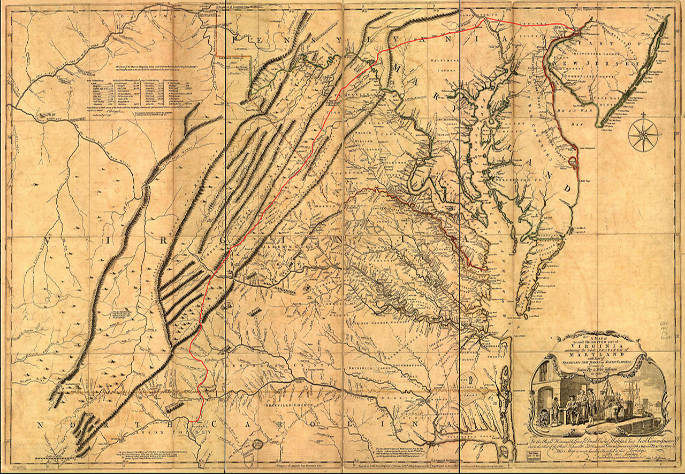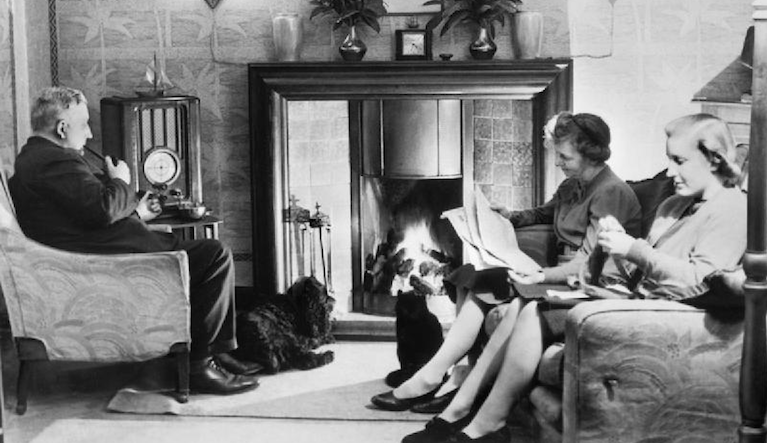NOTES ON THE STATE OF VIRGINIA: Journey to the Center of an American Document, Queries XIX-XXII

This is the tenth installment of a year-long journey through Thomas Jefferson’s Notes on the State of Virginia.
Query XIX: The present state of manufactures, commerce, interior and exterior trade;
Query XX: A notice of the commercial productions particular to the State, and of those objects which the inhabitants are obliged to get from Europe and from other parts of the world;
Query XI: The weights, measures and the currency of the hard money; some details relating to exchange with Europe;
Query XII: The public income and expenses
In these sections of Notes on the State of Virginia, Jefferson concludes his meditation on American liberty with a pecuniary focus that seems strange at first. These four queries are about money. After Jefferson’s rhapsodic depictions of Natural Bridge, his ravenous tracing of westward rivers, after his soaring moral arguments against slavery and his support for unfettered scientific investigation, this economic snapshot feels like something only policy wonks or historians of the period would want to read.
So why should contemporary audiences care about eighteenth century currency fluctuations? Why, in 2016, should we study Jefferson’s strategies for local grain storage?
My answer is this: Jefferson’s vision for the new republic doesn’t take shape in a vacuum. It depends on his corresponding vision for American daily life, which he formulates, in these queries, as an interlocking series of political and economic transactions. In 2016, we’re still living with and against Jefferson’s definition of what it means to be an independent citizen, to achieve the state of virtuous self-governance he calls “happiness.” And depending on who you are in this new republic—planter or merchant, slave, free, artisan, immigrant, woman—your chance at “happiness” is limited by your ability to participate in the economy.
Turns out, freedom becomes visible only when you can identify some constraints against which to measure it.
In these queries, we learn that Jefferson’s “happiest” Americans are white, male, slave-owning farmers living in fertile agrarian regions. These men enjoy extended family networks and are largely free from debt, bringing only a few surplus goods to market. Except for “sugar, coffee and tea,” these planters purchase almost nothing from the “workshops” of imperial Europe. Such men are not rich, though their land and slaves steadily increase in value. Having prudently repaid all foreign debts incurred during the Revolution, and with a modest tax burden supporting an equally modest-sized federal government, Jefferson reasons they will be averse to war. Defeating the weevil, cultivating new crops, and figuring out how to breed Arabian horses are more pressing activities for the hypothetical farmer of Notes.
For Jefferson, the character of economic activity within this planter class reflects the unique character of the new republic. He argues that the practices of buying, selling, borrowing, and saving won’t mirror those of Europe. Contrary to the continental model, American citizen-farmers will grow or make most of what they need to survive, thereby reducing their need for European imported goods and for domestic manufacturing. In Query XIX, Jefferson observes that abundance of land is the key to understanding this change:
In Europe the lands are either cultivated, or locked up against the cultivator. Manufacture must therefore be resorted to of necessity not of choice, to support the surplus of their people. But we have an immensity of land courting the industry of the husbandman. Is it best then that all our citizens should be employed in its improvement, or that one half should be called off from that to exercise manufactures and handicraft arts for the other?
Jefferson knows that the way American “husbandmen” spend their time and money will directly impact the new nation’s sphere of influence. So he ties agrarian self-sufficiency to virtue. As he remarks in that same query, “Those who labor in the earth are the chosen people of God, if ever he had a chosen people, whose breasts He has made His peculiar deposit for substantial and genuine virtue.” In Notes, Jefferson advocates for small-scale, economic independence, which he believes will drive both culture and policy. “Freedom,” for Jefferson, doesn’t mean retreating into the wilderness (despite his love of nature, Jefferson believes that civilization is the truest state of man). It means dedicating one’s energy to personal and political self-governance. And effective self-governance relies on self-control, on relinquishing greedy human passions in favor of purposeful production.
And so the citizen-farmer’s freedom is contingent, after all. His “happiness” depends on having access to more land, which must be purchased from Europe (as Jefferson does, in 1803, with the Louisiana Territory), or, more precisely, seized from native populations. Jefferson admits that tobacco farming exhausts the land, so the farmer must either abandon a potentially profitable crop or keep moving west in search of fertile soil. Massive numbers of enslaved people must cultivate that soil, of course. And all monies must flow to the male heads-of-household, who unilaterally distribute food, clothing, and gifts to the women, children, and enslaved people attached to the estate. Jeffersonian “happiness” is, in fact, a tightly controlled, patriarchal economy balanced on systematically disenfranchising women and people of color, and on exploiting the environment.
I want to say that America in 2016 is light years away from Jefferson’s eighteenth century dream. But the truth is, we’re still contending with the legacies of inequality that were so essential to his design for our nation. How much do we remember? Do we remember the right things? Over the past few years, I’ve been asking myself how a poem can function in service of individual and collective memory. Right now, I’m trying to write poems that contend with the language of historical documents like Notes, in some cases lifting lines from those records and writing my own words around, into, or out of them. It’s my way of making my poem concretely accountable to the past, when I fear my memory is suspect, my knowledge of history flawed. A poem that is mindful of its sources and cognizant of the complex power of received language prospers on the page; perhaps that is one definition of “happiness” in poetry.
As poets, we’re taught to strive to make seemingly familiar language feel new, even strange. But Notes fascinates me for the opposite reason. Jefferson’s Virginia is familiar to me, often uncomfortably so. To closely read Notes feels like diving into the submerged wreckage of our collective past, only to discover that I already know every buckled seam and ruined hull. So I’m not surprised when I encounter the toxic center of Jefferson’s vision for American democracy. What shocks me is how good it all still sounds in Jefferson’s prose. How that word, “happiness,” has deadly strings attached, but in the moment, you can pretend that Jefferson’s only talking about farming, or about family.
He’s only describing what we all want: to be at home in our own country.


